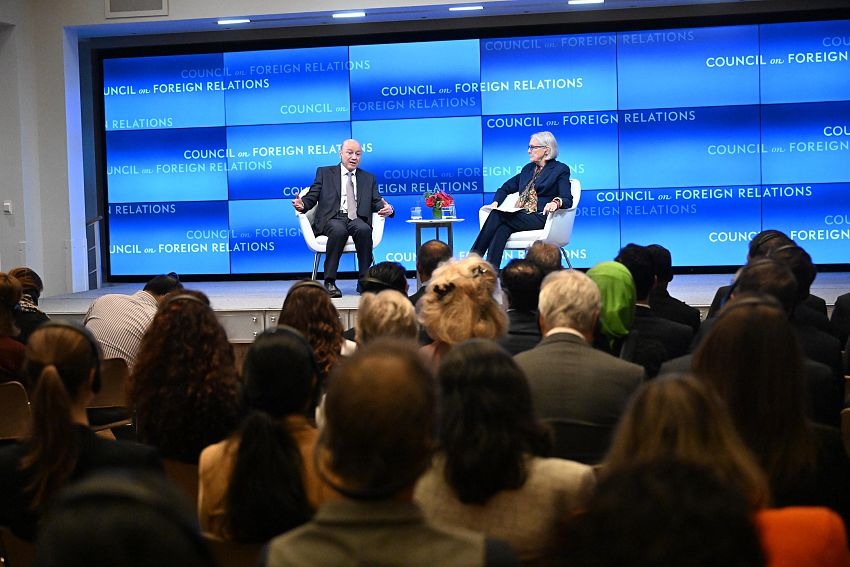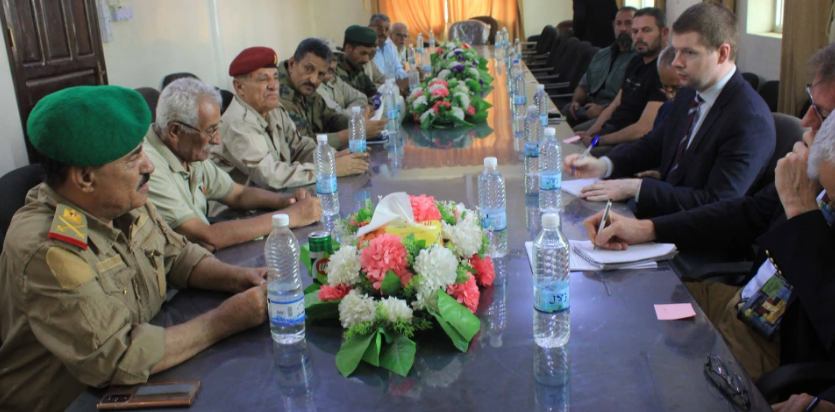
Barran Press
NEW YORK — On September 26, 2024, Rashad Alimi, President of Yemen's Presidential Leadership Council, called on the international community to move away from a policy of containment towards the Houthi movement and implement deterrent measures in response to their attacks on shipping vessels.
Speaking at a session organized by the Council on Foreign Relations, Alimi emphasized the need for a strategic partnership to prevent other terrorist organizations from adopting similar tactics. His remarks came during his visit to New York, where he is participating in the UN High-Level Future Summit and the UN General Assembly.
Alimi reiterated his call for the international community to classify the Houthis as an international terrorist organization, arguing that this designation is essential for fostering serious engagement with peace efforts. He warned of the dangers associated with the Houthis' ties to terrorist organizations both within and outside Yemen, as well as their involvement in regional arms smuggling networks.
According to the official Yemeni news agency Saba, Alimi expressed concerns about the Houthis' attacks on commercial shipping in the Red Sea, urging a transition from containment to effective deterrent actions. He stated, "Despite international efforts to address the threat posed by the Safer oil tanker in recent years, we now face a similar danger with every tanker and ship navigating the Red Sea due to Houthi terrorism."
He dismissed the notion that the Houthi attacks are linked to the Israeli-Palestinian conflict, asserting that believing these assaults will cease with a ceasefire in Gaza is misguided. Alimi pointed out that the Red Sea has been weaponized and international trade routes exploited for extortion, a trend likely to continue under Iranian influence and its affiliated militias.
He reaffirmed the commitment of the Presidential Leadership Council and the Yemeni government to a just and sustainable peace based on agreed-upon references, including international resolutions, particularly UN Security Council Resolution 2216.
In his address, Alimi outlined the significant political, military, security, economic, and social challenges facing the Yemeni government due to the Iranian-backed Houthi coup. He highlighted the vital role of regional allies and friends in supporting the Presidential Leadership Council and the government to overcome these challenges.
He acknowledged the support from the Saudi-led coalition, which he credited as a crucial ally for Yemen throughout various stages of the conflict.
Since November 2023, the Houthi group, recognized globally as a terrorist organization, has continued its missile and drone attacks against commercial vessels in the Red Sea, Arabian Sea, and Gulf of Aden. These attacks have led to rising marine insurance costs and prompted many international shipping companies to opt for longer routes around the southern tip of Africa.
In response to Houthi aggression and to safeguard maritime navigation, the United States formed a multinational coalition in December 2023. U.S. forces have intermittently conducted strikes against Houthi military targets, with approximately 560 strikes reported since January 12, resulting in casualties among Houthi fighters.
Despite ongoing Houthi maritime assaults, there have been no significant incidents or injuries reported among the targeted vessels, aside from three out of 162 vessels claimed to have been attacked since November. The Yemeni government maintains that Western airstrikes alone are insufficient to mitigate the Houthi threat to maritime safety, advocating for enhanced support for its armed forces to reclaim Hodeidah and other areas under Houthi control.





